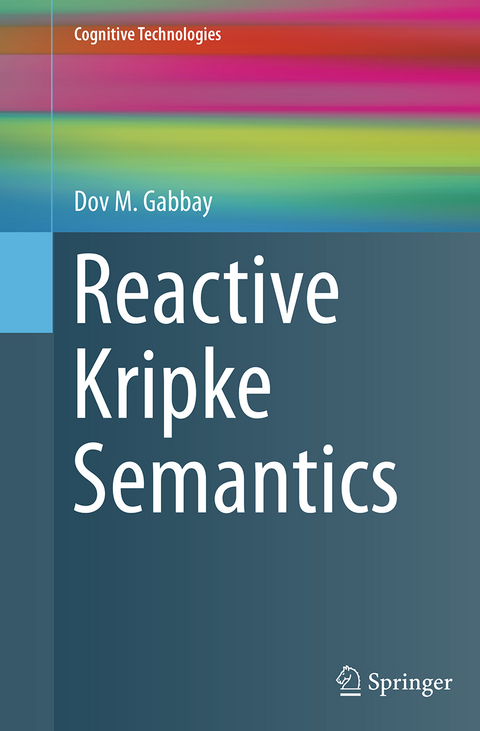
Reactive Kripke Semantics
Springer Berlin (Verlag)
978-3-662-51436-8 (ISBN)
This text offers an extension to the traditional Kripke semantics for non-classical logics by adding the notion of reactivity. Reactive Kripke models change their accessibility relation as we progress in the evaluation process of formulas in the model. This feature makes the reactive Kripke semantics strictly stronger and more applicable than the traditional one. Here we investigate the properties and axiomatisations of this new and most effective semantics, and we offer a wide landscape of applications of the idea of reactivity. Applied topics include reactive automata, reactive grammars, reactive products, reactive deontic logic and reactive preferential structures.
Reactive Kripke semantics is the next step in the evolution of possible world semantics for non-classical logics, and this book, written by one of the leading authorities in the field, is essential reading for graduate students and researchers in applied logic, and it offers many research opportunities forPhD students.
The author is one of the foremost authorities on nonclassical logics and their applications in computing.
Chap.1 - A Theory of Hypermodal Logics.- Chap.2 - Introducing Reactive Kripke Semantics and Arc Accessibility.- Chap.3 - Introducing Reactive Modal Tableaux.- Chap.4 - Reactive Intuitionistic Tableaux.- Chap.5 - Completeness Theorems for Reactive Modal Logics.- Chap.6 - Modal Logics of Reactive Frames.- Chap.7 - Global View on Reactivity: Switch Graphs and their Logics.- Chap.8 - Reactive Automata.- Chap.9 - Reactivity and Grammars: An Exploration.- Chap.10 - Reactive Flow Products.- Chap.11 - Reactive Standard Deontic Logic.- Chap.12 - Reactive Preferential Structures and Nonmonotonic Consequence.- References.- Index.
"This book is devoted to a new and so far little explored research topic, developed mostly by the author since the early 2000s. ... this book is rich with ideas and interesting in various ways. It is written in the distinct Gabbay's trademark style. It can surely serve as a rich source of inspiration and research ideas ... ." (Valentin Goranko, Studia Logica, Vol. 105, 2017)
| Erscheinungsdatum | 29.08.2016 |
|---|---|
| Reihe/Serie | Cognitive Technologies |
| Zusatzinfo | XII, 442 p. 201 illus., 10 illus. in color. |
| Verlagsort | Berlin |
| Sprache | englisch |
| Maße | 155 x 235 mm |
| Themenwelt | Mathematik / Informatik ► Informatik ► Theorie / Studium |
| Schlagworte | Artificial Intelligence • artificial intelligence (incl. robotics) • Computer Science • Deontic Logic • Hypermodal logics • Kripke semantics • Logic • Mathematical Foundations • Mathematical Logic • Mathematical logic and formal languages • Mathematical Logic and Foundations • Mathematical theory of computation • Modal Logic • Philosophy: logic • Reactive automata • Robotics |
| ISBN-10 | 3-662-51436-2 / 3662514362 |
| ISBN-13 | 978-3-662-51436-8 / 9783662514368 |
| Zustand | Neuware |
| Haben Sie eine Frage zum Produkt? |
aus dem Bereich


